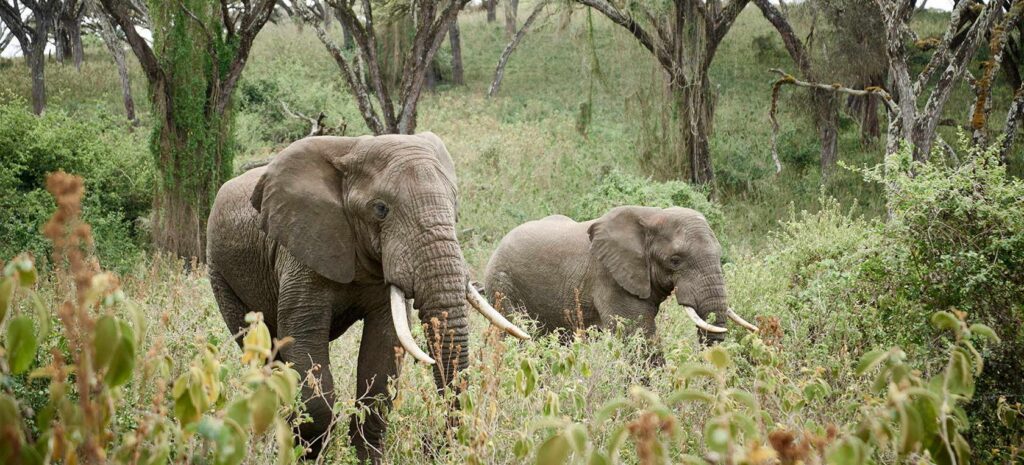At Lamara we take all reasonable measures to ensure the safety and enjoyment of our “Globetrotters” while they’re travelling with us. Our Travel Tips for Globetrotters, complied by the editors of Globetrotting Magazine, is a list of over 60 tips designed to further enhance your experience, and help ensure your own safety while abroad.
Kenya`s Travel Tips
Travel Tips
What to Pack before Your Safari
When visiting Kenya, casual, lightweight and comfortable clothing is recommended, and so too are strong, comfortable walking shoes. If travelling to the highlands, a sweater or jacket may be required – this is also true for evenings. When going on safari or game viewing, clothing should always be neutral in color to blend in with natural surroundings. As such, white or vividly patterned clothing should be avoided. Lighter colors will help keep mosquitoes at bay. Sunscreen with strong SPFs should be brought from home along with wide-brimmed hats which provide good protection against the sun. In certain areas, mainly by the coast, it is considered inappropriate to wear more revealing clothing like shorts, tank tops and short-sleeved tops.
It is important to remember that there isn’t always much space for luggage on a safari, so one should pack accordingly.
Passports
A passport is the only reliable and universally accepted identification document, and it proves that you have a right to return to your country. You are strongly advised to always carry a valid passport when travelling to any foreign destination. Crossing international borders can be complicated and sometimes requires many different kinds of documents. Being prepared is the key to easing your way through this process, so make sure you know what documents you need, where to get them, and which ones will make your crossing quick and easy.
Remember to:
- Carry a passport for all trips outside your country.
- Be sure that your passport is still valid.
- Check that your passport is valid for 6 months beyond your date of entry.
- Scan a copy of your passport and email it to yourself or carry it to a separate location
- Leave a copy with a trusted friend or relative who is not travelling with you.
- Keep your passport safe while travelling.
- Do not leave it unattended in your luggage, vehicle, hotel or elsewhere.
- Carry it in your money belt, inside your coat pocket or purse, or lock it in your hotel safe
Travel and Health
According to the World Health Organization, more than 900 million international journeys are undertaken every year. It doesn’t come as a surprise that Global travel on this scale exposes many people to a range of health risks. International travelers should always be extra concerned about their health and safety, as every region and country around the world has its own risks, customs and level of health care. However, whatever your age or destination, properly preparing before you leave, and staying in good health while travelling, can help you have a happy and enjoyable trip.
At Lamara we do our best to provide our clients with the most accurate and up-to-date travel health information for the region you will be visiting. Some essential information on travel health risks and preventive measures is provided in the website links below. Finally, it is important that you get advice from your family physician or a specialist from a Travel Health clinic before travelling. Keep you and your loved ones healthy during your travels.
Things To Do in Kenya
- Langata Giraffe Center and the adjoining Giraffe Manor Hotel. Giraffe Manor is one of the only hotels in the world where you can feed giraffes from your window.
- Nairobi might be dusty, hot, and frenetic but you can cool yourself down with the famous local brew, Tusker. Try it out at Casablanca the Moroccan style Bedouin tent bar in Nairobi.
- Take a tour of the Karen Blixen Museum. A 1920’s farmhouse where Blixen lived and wrote her famous book “Out of Africa” which chronicles life at the Estate. Visitors have the opportunity to take part in continuously offered guided tours of the house, which features rooms designed in both the original decor and with props from the 1985 film.
- Visit Nairobi Java House, home to Kenya’s finest hand-roasted coffee. Coffee though hard to believe originates from Ethiopia and not Java, Italy, or Seattle as we might be led to believe.
- The Rift Valley, an hour outside of Nairobi offers dramatic views of the Rift’s steep sides and wide-open plains.
- The dive area Bamburi Beach in Mombasa on the north coast is a paradise for beginners as well as for experienced divers. The Indian Ocean offers the opportunity to see sea turtles, morays, giant wrasse, groupers, white tip reef sharks, mantas, and whale sharks.
- Just two hours outside of Mombasa is the Tana River Primate Reserve. Well known for extreme class IV white water rafting and the protection of two endangered primates, the Mangabey, and the red colobus monkey.
- Be amazed at the Mara River where the famous crossing takes place. Not for the faint-hearted, as this is where the crocs lie in wait to attack unwary Wildebeest.
- Take a sundowner atop a hill where you can see the whole of the Mara after watching a cheetah hunt.
- Learn to catch and eat some of the freshest seafood at Alfajiri Villas on the East African Coast, one hour from Mombasa Airport.
- A photographer’s paradise, the Amboseli National Park is the place for truly breathtaking shots of Mount Kilimanjaro, the snow-capped peak of the mountain dominates every aspect of the park. Nothing beats capturing a shot of the mountain with Amboseli’s elephants in the foreground.
- Explore the lesser-known park, Samburu National Reserve for the Samburu “Special Five”, the grevy’s zebra, Somali ostrich, reticulated giraffe, gerenuk, and the beisa oryx.
- Traverse diverse terrains atop a horse at the magnificent Fairmont Mount Kenya.

